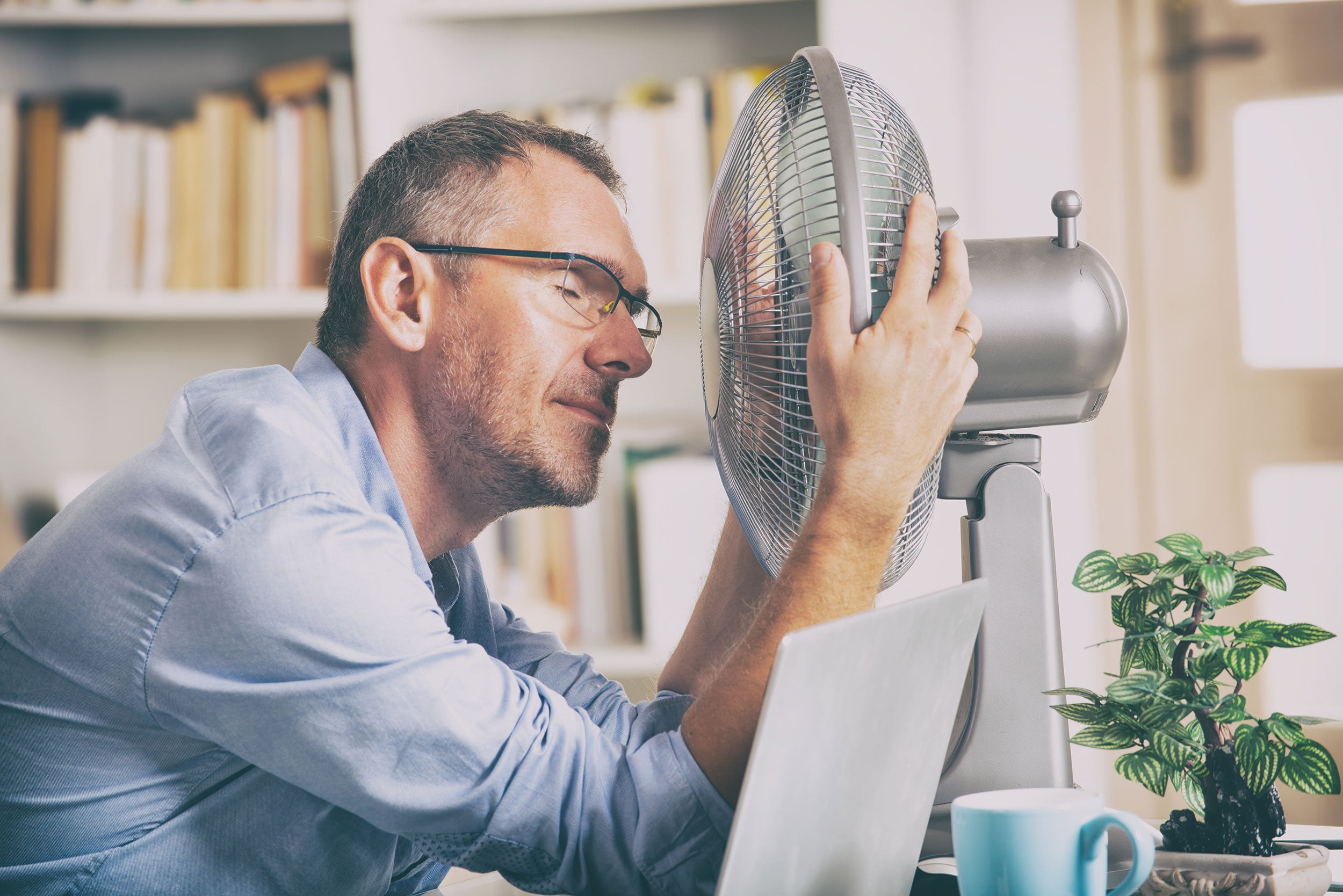- Sponsored Content

We don’t need to be told that the female menopause exists. It’s medically diagnosed in women after 12 months without a menstrual period, and there’s increasing support and information surrounding it. The male menopause (or ‘manopause’) however, is a phrase that’s a little misleading and a life phase that has been wholly debatable until recently.
“Although men don’t go through a well-defined period of hormone changes like women do, they certainly experience a shift in their hormonal makeup as they get older,” confirms Dr Peter Chiu from Osler Health International. “Hormone changes are a natural part of aging but unlike the more dramatic reproductive hormone plunge that females endure, sex hormone changes in men occur gradually. What’s more, this hormonal shift can cause physical, emotional, sexual, and psychological problems.” Read on as Dr Chiu reveals more.
What causes these changes in men?
It’s all to do with testosterone – the hormone that puts hair on a man’s chest and face and the force behind their sex drive. During puberty, testosterone helps build men’s muscles and deepens their voice. By adulthood, it works to keep men’s muscles and bones strong and maintains their interest in sex.Testosterone hormone levels are key to ‘normal’ male sexual development and function.
At what age do shifts occur?
Production of testosterone and other male hormones decline over a period of many years and the consequences aren’t necessarily clear. This gradual decline is called ‘late-onset hypogonadism’ or ‘age-related low testosterone’. A man’s testosterone levels decline on average about 1% a year after 40 years of age. But before you start to worry, most older men still have testosterone levels within the ‘normal range’, with only an estimated 10% to 25% having levels considered to be low.
Does every man experience it?
Every man will have a decrease in testosterone as they get older. However, some may be affected by it more than others. Male menopause has no set duration and could become long-lasting if not addressed appropriately, damaging a man’s health and wellbeing.
How is the male menopause identified by a doctor?
A diagnosis can be made based on the symptoms, a physical assessment and a mental assessment. I’d recommend a blood test which may include measuring testosterone levels and other tests to examine overall health. Doing so will also rule out other medical problems.
Is it treatable?
The simplest way to manage symptoms of the ‘manopause’ is by making healthier lifestyle choices. These include eating a well-balanced diet, doing regular exercise, getting enough sleep, reducing stress levels, and minimising alcohol and tobacco use. As a doctor, I’d adopt a holistic approach if symptoms appear to be caused by physical, lifestyle, and psychological factors, to provide support for my patient’s physical, sexual and mental health. The approach at Osler Health is to understand the ‘whole of the patient’ and ‘joining the dots’ as opposed to just handing over some pills.
What can be done to increase testosterone levels?
If test results suggest a testosterone deficiency, hormone replacement therapy may be a treatment option. As the benefits of this therapy are not clear and there are potential risks, it’s important to talk to your GP to weigh up the pros and cons of treatment before making a decision.
What should you do if you’re concerned?
The first thing to do is to seek a medical opinion so visit a doctor. There may be a host of reasons that are nothing to do with testosterone; mental health, weight, stress, thyroid issues may all play a part in how you’re feeling and how your body is behaving. If you see a trusted holistic GP doctor they’ll ask the right questions to ascertain what the issue is. If a male doctor is preferable, we have two at Osler Health – myself and Dr Neil Forrest.
 What are the signs of the ‘manopause’?
What are the signs of the ‘manopause’?
Symptoms of low testosterone may well go unnoticed, but some possible signs include:
- Fatigue, general lack of enthusiasm or energy
- Depressed mood
- Poor concentration
- Sexual problems such as loss of sex drive and erectile dysfunction
- Hot flushes or sweats
- Sleep issues such as increased sleepiness or sleep disturbances
- Reduced muscle bulk and strength
- Loss of facial or body hair
- Increased body fat
- Height loss
- Chest discomfort
 Dr Peter Chiu is a family GP based at Osler Health Raffles Hotel Arcade clinic. He trained in Austria and Singapore and is also the Official Consulting Physician of the German, Austrian and Swiss Embassies in Singapore.
Dr Peter Chiu is a family GP based at Osler Health Raffles Hotel Arcade clinic. He trained in Austria and Singapore and is also the Official Consulting Physician of the German, Austrian and Swiss Embassies in Singapore.
How can a GP help?
osler-health.com. Tel: +65 6332 2727
or WhatsApp: +65 9670 7027



 What are the signs of the ‘manopause’?
What are the signs of the ‘manopause’?




